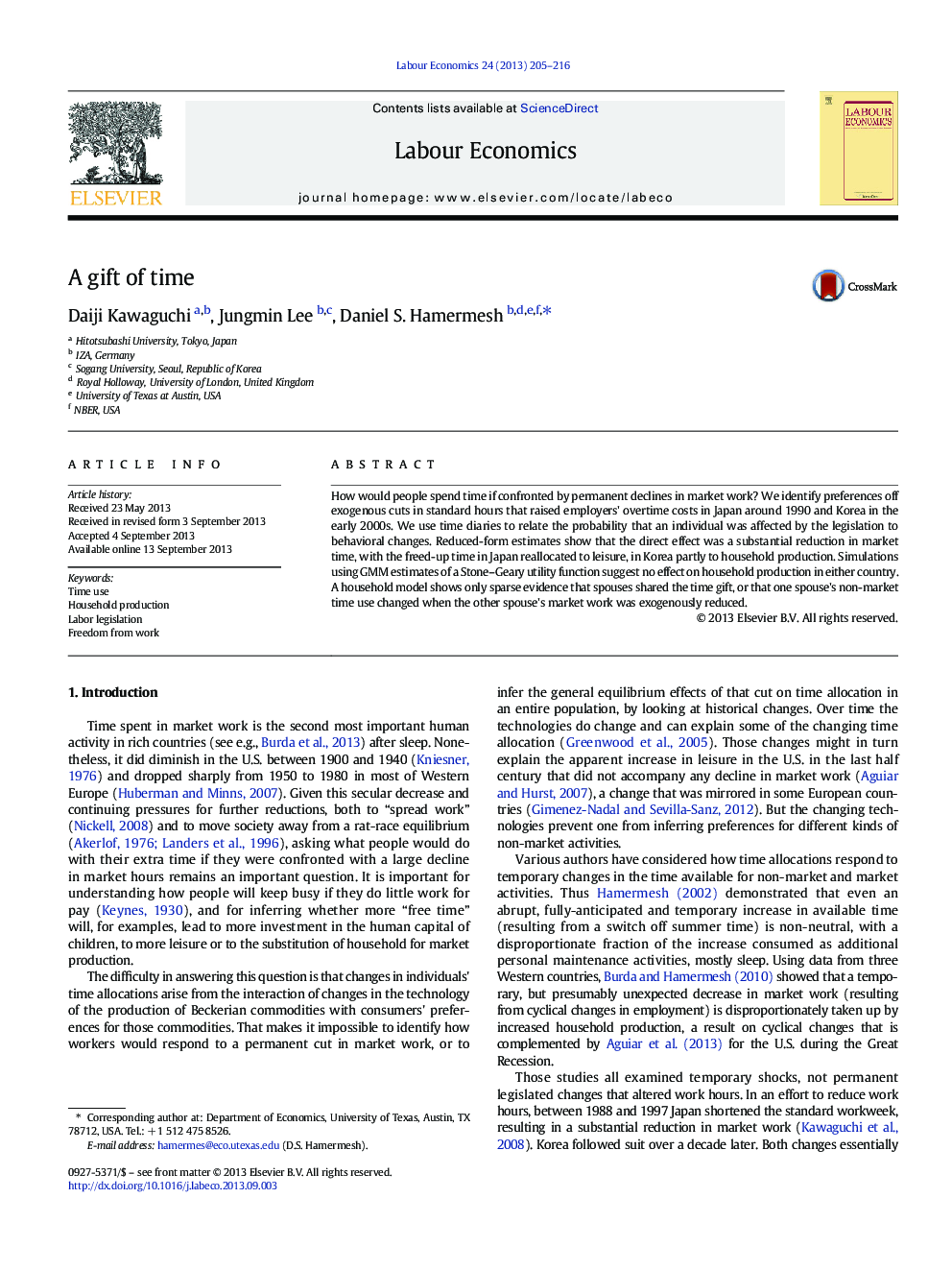| Article ID | Journal | Published Year | Pages | File Type |
|---|---|---|---|---|
| 7372401 | Labour Economics | 2013 | 12 Pages |
Abstract
How would people spend time if confronted by permanent declines in market work? We identify preferences off exogenous cuts in standard hours that raised employers' overtime costs in Japan around 1990 and Korea in the early 2000s. We use time diaries to relate the probability that an individual was affected by the legislation to behavioral changes. Reduced-form estimates show that the direct effect was a substantial reduction in market time, with the freed-up time in Japan reallocated to leisure, in Korea partly to household production. Simulations using GMM estimates of a Stone-Geary utility function suggest no effect on household production in either country. A household model shows only sparse evidence that spouses shared the time gift, or that one spouse's non-market time use changed when the other spouse's market work was exogenously reduced.
Related Topics
Social Sciences and Humanities
Economics, Econometrics and Finance
Economics and Econometrics
Authors
Daiji Kawaguchi, Jungmin Lee, Daniel S. Hamermesh,
